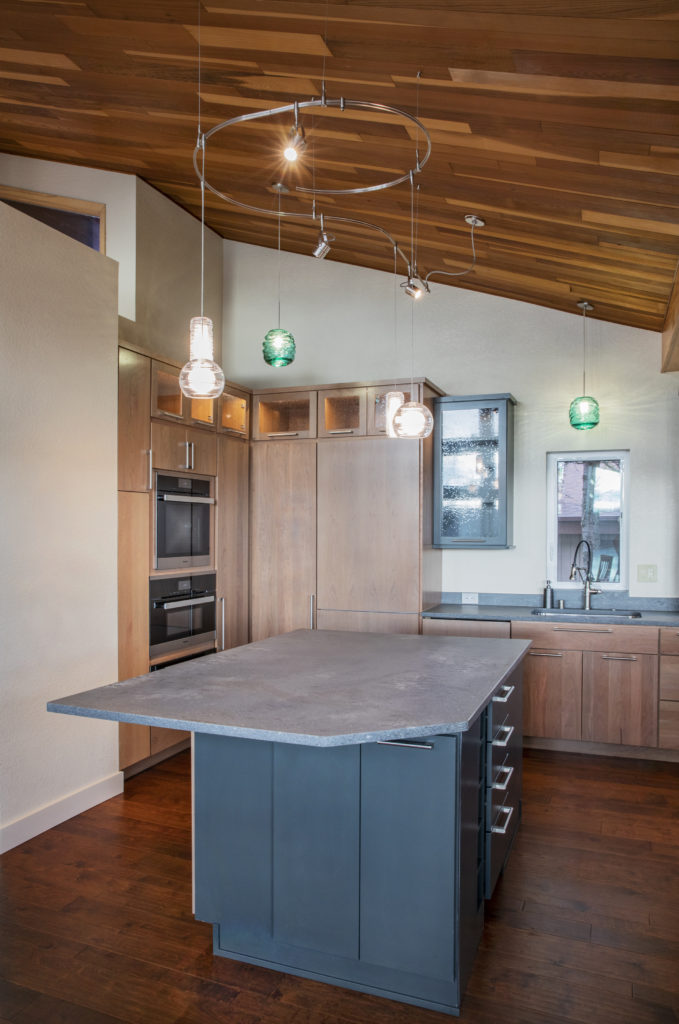
Countertops 101
Some Things You Should Know Before Selecting Your Countertops:
Kitchen counters have come a long way in the last 50 years. Today’s options have become more high-tech and luxurious looking. The different materials have also become more versatile and easier on your budget. There’s something for just about everyone, which means you get to hand select the look and feel of your kitchen from the floor to the ceiling. If you’re thinking about renovating your kitchen, then the countertops are one area you shouldn’t overlook.
Types of Countertop Materials:
If you’re an avid cook, you know the importance of having a good quality countertop. Certain materials look nice but aren’t that durable. If you’re not up for properly maintaining your kitchen countertops, then you’re better off getting a harder surface. The only problem is that many of the harder ones are prone to scratches and chips. At the end of the day, it comes down to what’s more important to you. For most people, it’s about durability and ease of maintenance.
The most common countertop options come down to granite, quartz, marble, ceramic, stainless steel and wood. These are the most widely used of the bunch, followed by laminate, which is mainly popular among those who are on a tighter budget.
Quartz countertops are man-made and consist of roughly 90% quartz chips or quartz dust bound together with 10% resin. Made from one of the hardest minerals on earth, quartz countertops are arguably the most durable option for kitchens. They’re also some of the most eye-catching. Because the quartz chips or dust is suspended in resin, it never needs to be resealed and are very maintenance free. Care should still be taken as the surface can be damaged by heat from a hot pot or a kettle of boiling water, though this can be prevented by using trivets and other heat-diffusing objects. The resins can sometimes also be stained by some common household oils, so you’ll want to wipe up any oil spills immediately.
Granite and marble are both excellent choices, if you’re looking for something a bit more extravagant. Although expensive, they are still easy to damage. If you opt for these natural stones, make sure to keep heat away from the surface. Place your hot pots and pans on the stove, sink or on pot-holders. They are also prone to cracking, so be mindful of not dropping anything hard on top of it. If cracks do occur, you can have it sanded and refinished by a professional.
Ceramic tile is another option for those who want something non-porous and more durable. It has a hard surface, making it ideal for the avid cook. You don’t have to worry about spills and splashes, since these are non-porous.
Choosing stainless steel means money isn’t a concern for you. They are on the pricier side of the spectrum, but they are highly valued among professionals and homeowners alike. These surfaces are easy to clean but are easy to scratch. Every now and then, you should give them a nice buff to keep them looking great.
Wood is another option, but is rather porous, which means it soaks up any and all spills. You have to be quick in wiping them up, so that stains and moisture don’t set in, leading to more problems like mildew, mold and bacteria growth.
Lastly, laminate surfaces like Formica can be used. This is a fabric that has paper sandwiched in between. It has melamine resin as well, which is all glued to the particleboard. It has a shallow depth, so it can easily chip.
What Are Solid Countertops?
Solid surface countertops such as Corian & HI-MACS are engineered, which means they’re man-made. Technically speaking, solid surface countertops are made with 66 percent minerals and 33 percent biding resins. They resemble natural stone, but aren’t porous. It looks like stone on the surface, but inside, you will find something else. If you were to slice granite down the middle, you would find a variety of particles that make up the slab. It’s a beautiful scene, but is also the reason it’s prone to breaking and cracking. If you were to cut solid surface slabs, you would find a stable base. Solid surface slabs are the same from surface to surface.
Acrylic vs. Polyester:
There are two types of solid surfaces, those that are acrylic-based and others that are polyester-based. The polyester version of solid counters are less expensive, but aren’t as high quality as the acrylic countertops, which are newer. There are a variety of brands that make acrylic counters which are 100% acrylic. Some brands of countertops make both polyester or acrylic. The polyester counters have vibrant colors, which is suitable for thermoforming and other fancy fabrication work.
There are different qualities of solid surface counters. This includes:
• Strong: This is different than laminate, since its plastic goes
completely through. This makes it more resistant to impact.
• Non-porous: This is able to resist bacteria, providing better sanitation for the kitchen.
• Easy to rehab: Solid surfaces can become scratched, but they can be erased using the manufacturer sandpaper.
When A Professional is Needed:
Solid surface & stone countertops aren’t DIYer friendly, so you’ll definitely need to hire a contractor to perform the installation for you. This is due to the fact that you have to be an authorized retailer to purchase these materials. You also have to be a skilled installer to complete the job. Aside from wood, all countertop materials are hard to fabricate without the proper expertise and tools.
Quartz is a popularly used material for kitchen countertops. It looks like natural stone, but doesn’t come with the pitfalls of marble and granite. When contrasting quartz and solid surface, you’ll find that both have their pros and cons.
When it comes to the composition of the two material, quartz is 10 percent resin, while solid surface is 33 percent acrylic resin. Some find the composition of quartz to be more satisfying. Both require a contractor to purchase and install the slab. If you are a cook, you will enjoy quartz more because it has a higher resistance to heat.
When it’s all said and done, you have to do your research to see which type of countertop would look best in your kitchen. Just keep in mind the above information as you’re shopping around.
Hope this helps!

